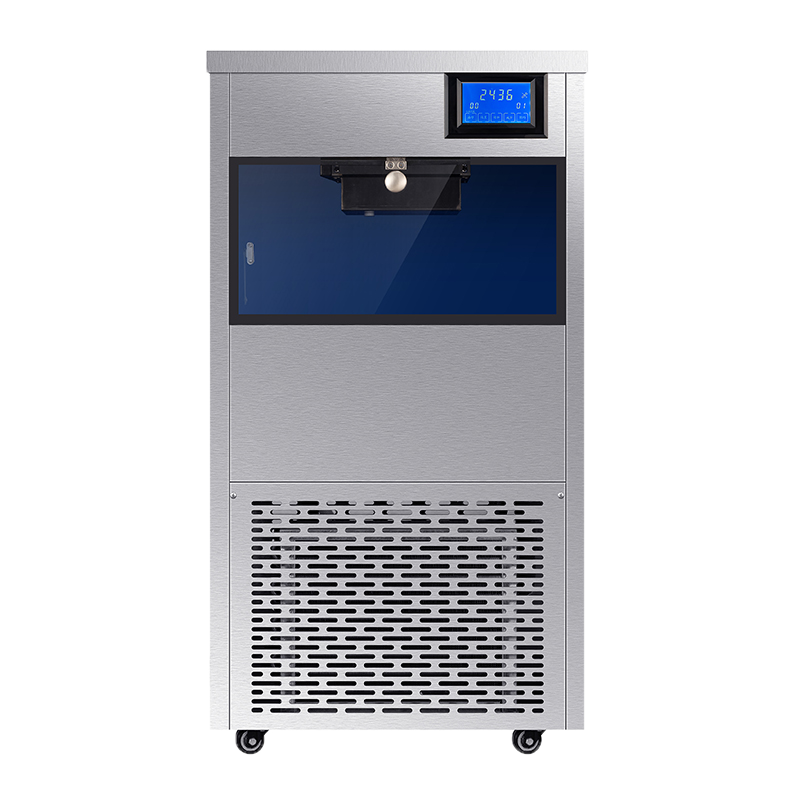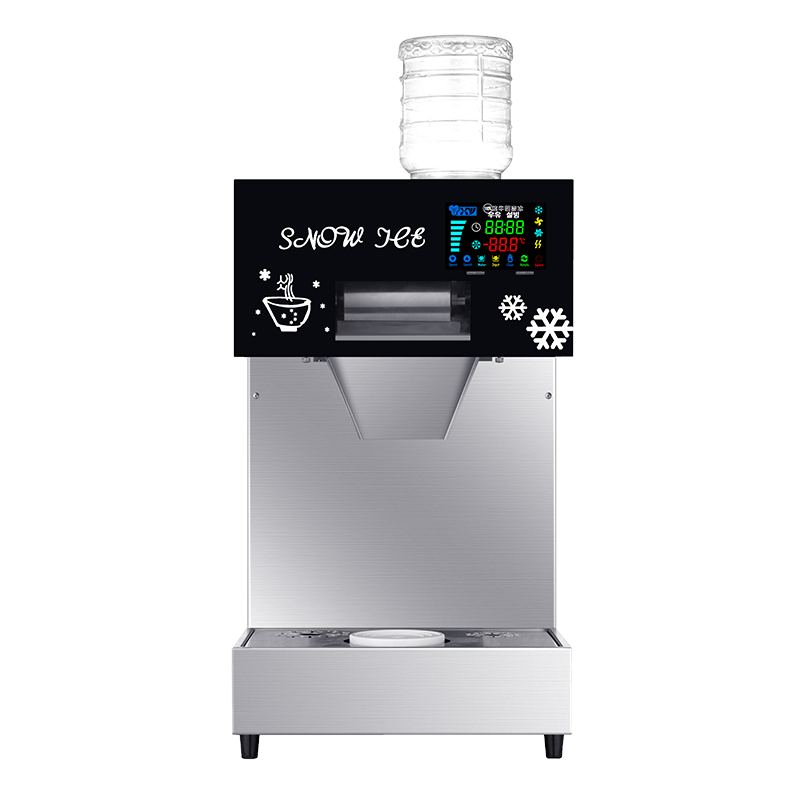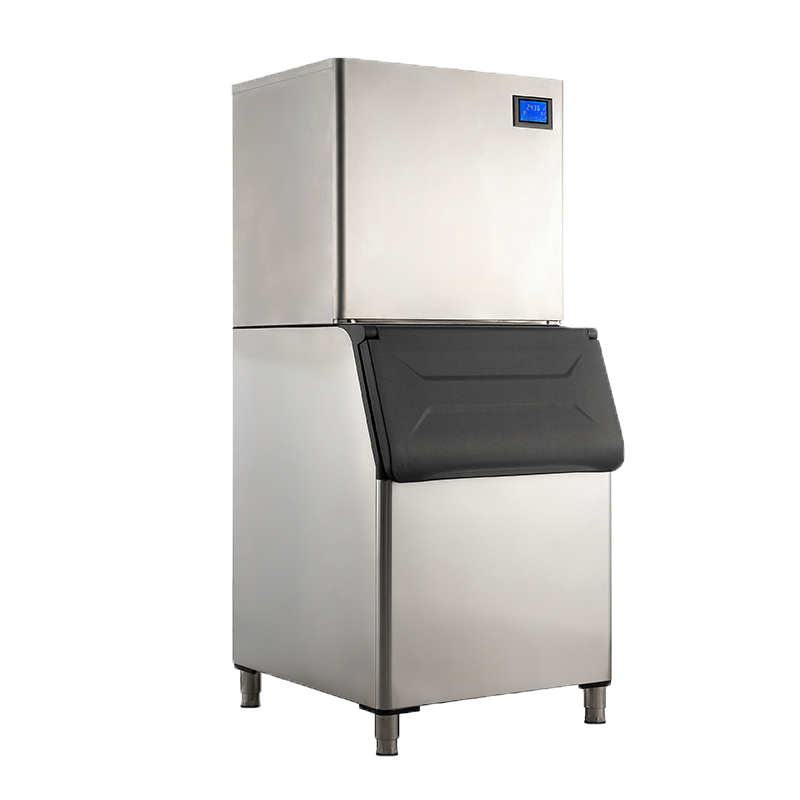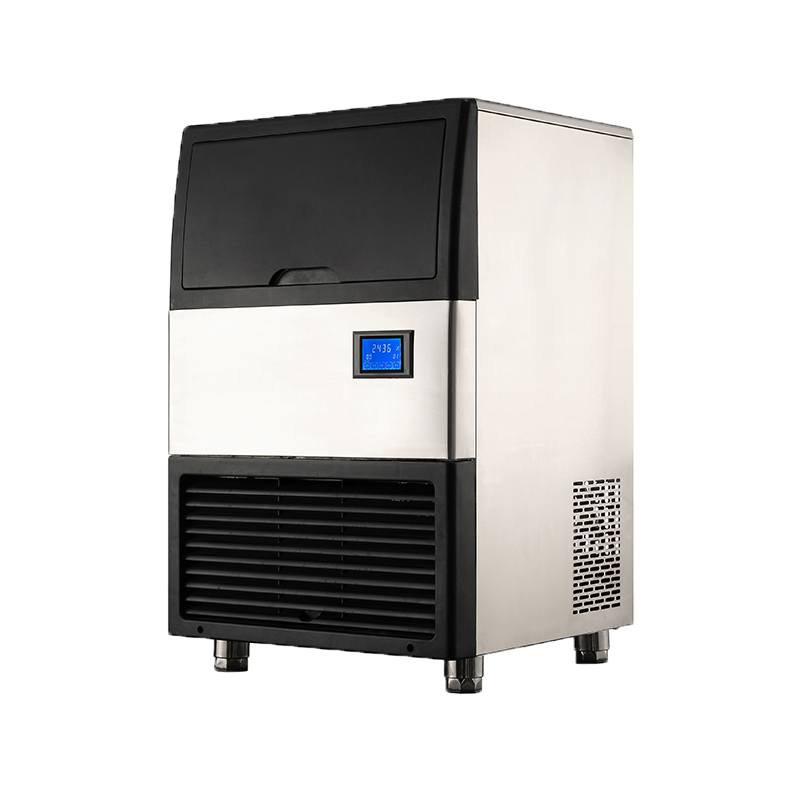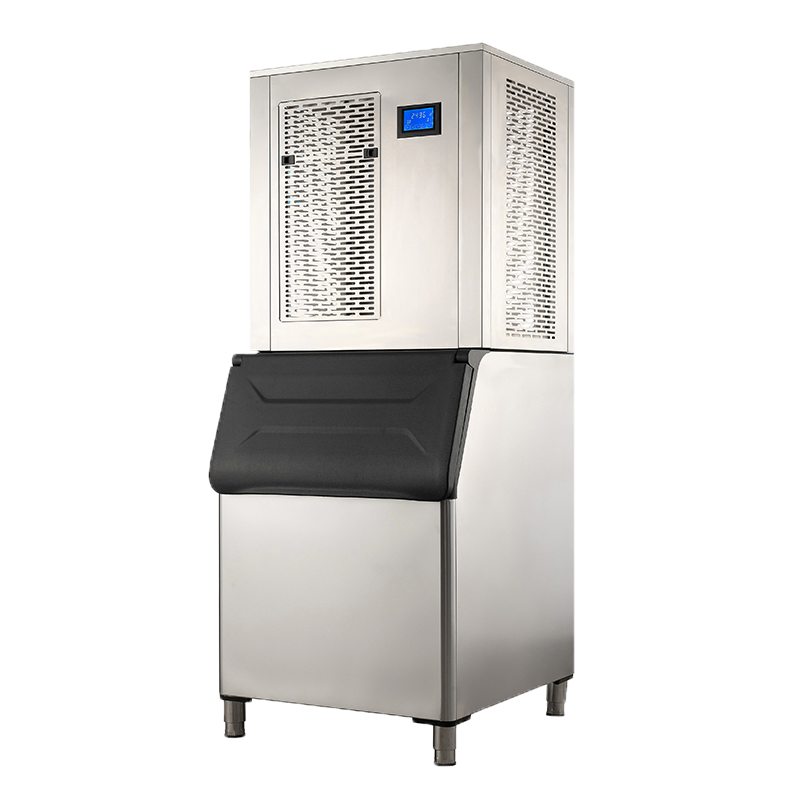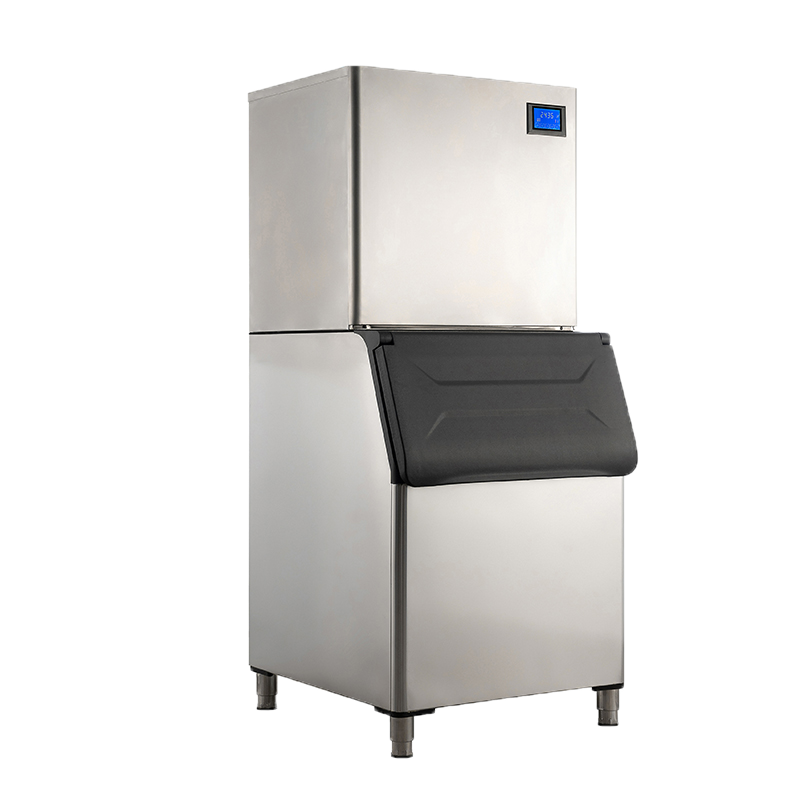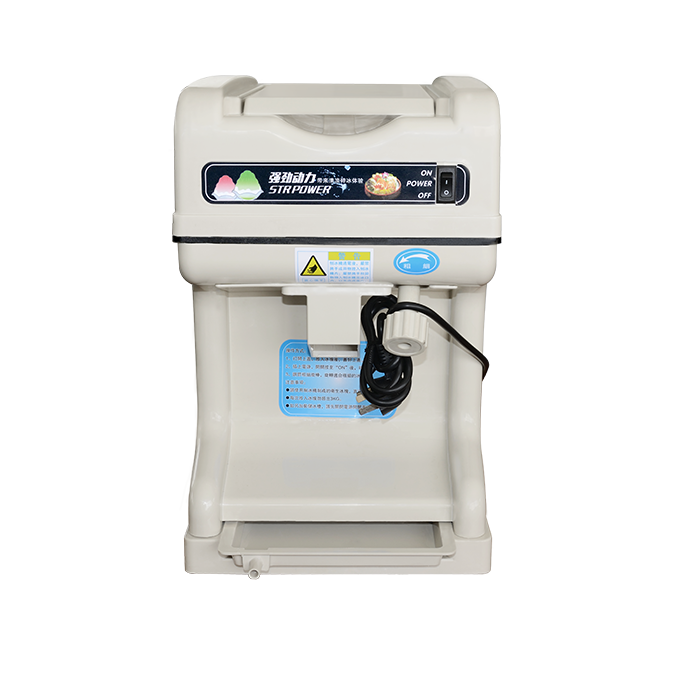Flake ice machines are indispensable tools in various industries, providing an efficient and versatile cooling solution. These machines produce ice in the form of thin, flat flakes, which are ideal for applications requiring rapid cooling, high surface contact, and easy handling. Understanding the different types of flake ice machines and their specific applications helps businesses make informed choices to meet their cooling needs effectively.
What is a Flake Ice Machine?
A flake ice machine produces ice that is thin, flat, and irregularly shaped. The ice flakes are typically 1 to 2 inches in length and have a high surface area relative to their volume. This shape allows for effective cooling and storage. Flake ice machines operate by freezing water onto a metal surface, then scraping the ice off as flakes. This process creates ice that is dry, soft, and easy to handle, making it suitable for a wide range of applications.
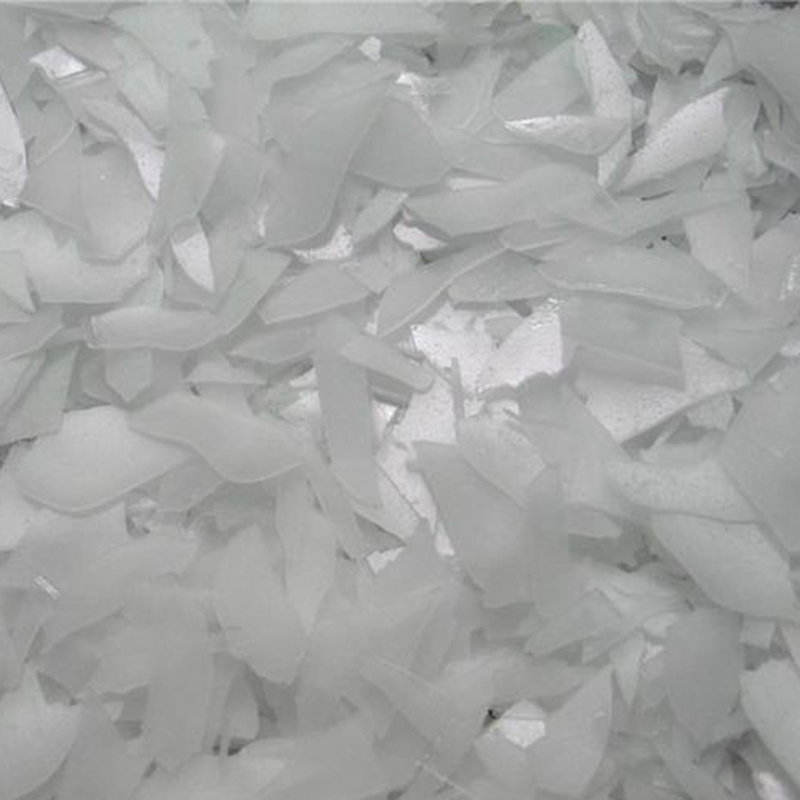
Applications of Flake Ice Machines
Commercial Uses:
Food Industry: Flake ice is essential in supermarkets, fish markets, and foodservice operations. It helps maintain the freshness of seafood, meats, and produce by providing a consistent cooling environment. The high surface area of the flakes ensures even cooling and extends the shelf life of perishable goods.
Healthcare: In hospitals and laboratories, flake ice is used for cooling medical supplies, such as pharmaceuticals, and for cryopreservation. The ice helps maintain the required temperatures for sensitive materials and contributes to the safe storage of biological specimens.
Industrial Uses:
Manufacturing: In various manufacturing processes, flake ice is used to cool down products or machinery. For example, it can be used in the production of concrete, where it helps regulate the temperature of the mix, preventing premature setting and ensuring the quality of the final product.
Construction: During hot weather, flake ice is used to cool concrete and other construction materials. This helps prevent issues related to excessive heat, such as rapid drying and thermal cracking, ensuring the structural integrity of the construction.
Advantages of Flake Ice
High Surface Area: The large surface area of flake ice relative to its volume allows for rapid and efficient cooling. This property is crucial in applications where quick temperature reduction is needed.
Flexibility: The soft and irregular shape of the flakes makes them easy to handle, pack, and store. They conform to the shape of the items being cooled, providing uniform coverage and minimizing the risk of spoilage or damage.
Uniform Cooling: Flake ice provides consistent cooling due to its even distribution and high surface area. This helps in maintaining the desired temperature and reducing the risk of uneven cooling, which can be critical in industrial processes.

Commercial Flake Ice Machines
Features:
Capacity: Commercial flake ice machines are designed for smaller-scale applications, typically producing ice in quantities suitable for restaurants, small foodservice operations, and supermarkets. They offer lower production capacities compared to industrial models, making them ideal for businesses with moderate ice needs.
Size and Design: These machines are generally compact and designed to fit in limited spaces. They often feature user-friendly controls and straightforward maintenance procedures, making them accessible for everyday use.
Benefits:
Compact Size: Ideal for establishments with limited space, commercial flake ice machines can be placed in tight quarters without compromising on performance.
Efficiency: Despite their smaller size, these machines are highly efficient in producing high-quality flake ice that meets the needs of commercial operations. They provide reliable performance and consistent ice production.
Industrial Flake Ice Machines
Features:
Capacity: Industrial flake ice machines are built for high-capacity production, often with advanced cooling technologies that enable them to meet the demands of large-scale operations. They can produce several tons of ice per day, catering to industries with significant ice consumption needs.
Durability: These machines are constructed with robust materials and designed to withstand the rigorous demands of industrial environments. They often feature heavy-duty components and advanced technology to ensure long-lasting performance and minimal downtime.
Benefits:
High Output: Industrial machines can produce large quantities of ice continuously, making them suitable for industries with high-volume ice needs, such as large food processing plants, construction sites, and manufacturing facilities.
Robust Design: Engineered to handle demanding conditions, industrial flake ice machines are built for durability and reliability. They offer advanced features such as automated controls, remote monitoring, and enhanced energy efficiency.
Choosing the Right Flake Ice Machine
Capacity Needs: Assess your ice consumption requirements to determine whether a commercial or industrial machine is appropriate. Consider factors such as the volume of ice needed daily and the scale of your operations.
Space Considerations: Evaluate the available space for installing the machine. Commercial machines are designed to fit in smaller areas, while industrial machines require more space and may need specialized installation.
Energy Efficiency: Look for machines that offer energy-efficient operations to reduce operating costs and environmental impact. Modern flake ice machines often feature energy-saving technologies and eco-friendly refrigerants.
Maintenance Requirements: Consider the ease of maintenance and support services available for the machine. Choose models with user-friendly maintenance procedures and access to reliable service and parts.
Conclusion
Flake ice machines play a vital role in various commercial and industrial applications, providing efficient and versatile cooling solutions. Whether for foodservice, healthcare, manufacturing, or construction, understanding the features and benefits of both commercial and industrial flake ice machines helps businesses make informed decisions. By selecting the right machine for their needs, businesses can enhance their cooling processes, improve operational efficiency, and ensure the highest quality of their products and services.


